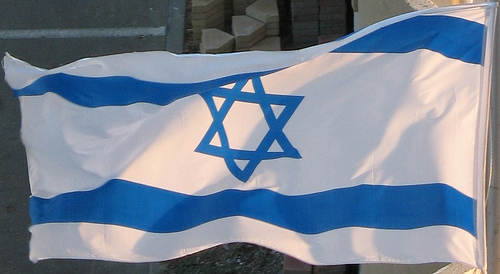
Israel - a place where the overloaded flow of human emotions combines with the natural warmth of a land kissed by the sun which heats up the blood in people’s veins to the point where its torrential stream floods our hearts, and sometimes, obscures our minds. This stream is not only the flux of life within our own bodies; it drags along with it the ancestral call of thousands of generations that strived for this land, to which they dedicated life and death. It is the land itself that, like a magnet attracting iron, urges the people to live for it, to die for it. This may be the reason why the promised streams of milk and honey are turning red.
When I first arrived here as a student, I found myself inside the great bubble, Tel Aviv. When people arrive here without having ever visited this country, they often have the strange sensation of finding themselves in some American or Western European city, mysteriously teleported to the Middle East. The city welcomes its visitors with its skyline of skyscrapers and five star hotels facing the sea, almost daring the waves, like secular temples dedicated to the power of the human will. It embraces them with a plethora of cafes, clubs, restaurants, theaters and museums; it cradles them in its parks and boulevards. But this is not Israel. Or, rather, it is a glass bell, an ivory tower, secluded from its surroundings. Herzliya is within this protected bubble; but Kfar Saba, for example, the town from which I’m presently writing these lines, is already borderline. It is actually closer to the west Bank than to Tel Aviv itself.
I stayed for one month in Tel Aviv and it was enough to see the golden bubble pulsing and breathing. I thought about how here, even during the darkest times, life went on almost unconcerned with the surrounding turmoil. Then university started. As I began to attend classes and meet new people, I saw how everything around me looked like a gold-plated, baroquely decorated, flourishing closed world, miles away, for example, from Gaza where a war was about to take place. One day I took a walk in the small, well-kept boulevards of the campus, and I looked at the folk around me: people were sitting under the trees, talking on the phone, studying or occupied with several other activities on their portable computers. As I walked out I felt strangely confused about the atomic and particular constitution of any human society; I elaborated on this subtle perception till my thoughts crystallized. I realized how, slowly but constantly, bubbles over bubbles were closing above me.
What is really within the bubble, what is outside? We find ourselves in the peculiar Middle Eastern bubble, the Israeli/Tel Aviv one. Of course, every place is a micro-cosmos in itself; and especially in Israel, every kibbutz is a bubble, every settlement. Mea Shearim, Bnei Brak - all these are bubbles. So who is within the bubble, who is outside? My conclusion was inevitable: ultimately we are all in our personal bubble. And is any kind of communication between bubbles possible? Is there any possible relationship between each one of us and our values, our visions of the world and even the semantic significance we give to our words, naively thinking we understand each other? Just as in each of the Israeli bubbles history plays a major role in determining its character, so do our everyday life and our experience deeply influence our perception of the world. Every one of us has a different perception. Is any bridge possible?
In Israel bridges are far less abundant than walls.
These thoughts were pretty depressing. So I decided, as I often do, to go swimming in the sea. I took bus #29 and in about thirty minutes I found myself in Herzliya Pituach. There too, like in Tel Aviv, towers of glass and steel rose against the sea, indifferent to all the risks and the insecurities connected with this land. But as I walked into the cold waters of the Mediterranean, the city in the background started fading, and soon it was just me and the sea. I enjoyed this reviving sensation for a while; I felt the water caressing my face like the hand of a single, immense, perpetually regenerating living being. With its limitless liquid body, it embraces the entire earth, with its breath it buries continents, unconcerned with any living creature, unstopped by any manmade barrier. It moves in waves and tides against the earth, in the perpetual striving to fecundate her. My communion with this being was deep and complete: I was in the most ancient condition of the human being, like an infant in the maternal womb.
Then I dived down to touch the sand a couples of meters below me.
When I emerged, everything had changed.
No building could be seen on the shore, but only the bare sand. Israel had gone back to being Canaan, and even before, when no man had seen it yet, no one had fought for it or died. And suddenly I realized that a crowd was on the shore, and others were swimming beside me. I recognized some of them.
Abraham our forefather, the first Jewish immigrant to this land, was admiring the view from a cliff. Right under it, on the shore, Isaac and Ishmael were playing beach bats. Moses, tired of parting seas, was fishing with Joshua, and King David was, as always, playing his harp. There were many more: Richard the Lionheart was playing backgammon with Salah-ad-din; and a beach-volley game was in full swing between Crusaders and Mamelukes. Ottoman sultans were dining with British officers, and tenant Wingate was getting a tan. Theodor Herzl’s beard interfered with his snorkel, while Rabin was challenging Arafat in a race for the shore. The IDF and the Hamas were fighting for the hand of a beautiful woman; and far from everyone, in the silence, Ben Gurion was sitting alone, smiling at the sun.
There were many more I could tell of, and many others I didn’t recognize.
At first I was really shocked. Suddenly I felt my blood heating up and flooding my heart, and I felt its pressure beating like a hammer on my brain. I could only scream and shout at the multitudes on the shore: Why?
Why all this conflict?
Why did you kill the land?
Why did you turn the streams of milk and honey into blood?
Who shall lift the curse on the Promised Land?
But there would be no answer.
My words were lost in the void, echoing from the sea to the Jordan.
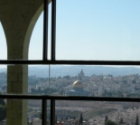 The Morman University Sunday Concert, with ESRA
The Morman University Sunday Concert, with ESRA 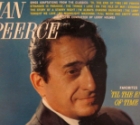 Congratulations to ESRA Rehovot on its 10th
Congratulations to ESRA Rehovot on its 10th 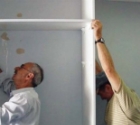 THANK YOU!
THANK YOU!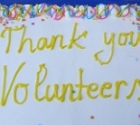 A new website in English - on Volunteering - Launched in Israel
A new website in English - on Volunteering - Launched in Israel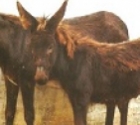 Help Needed for Abused Horses and Donkeys
Help Needed for Abused Horses and Donkeys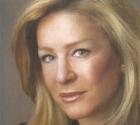 Heather's Heseg
Heather's Heseg